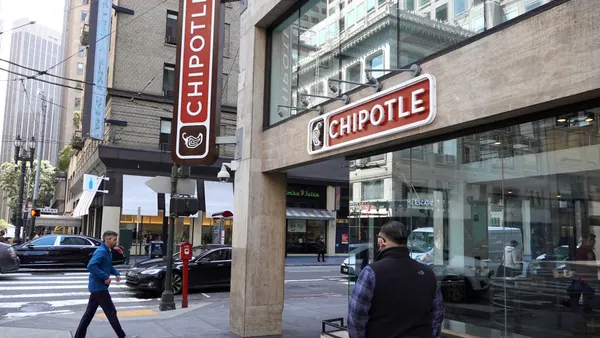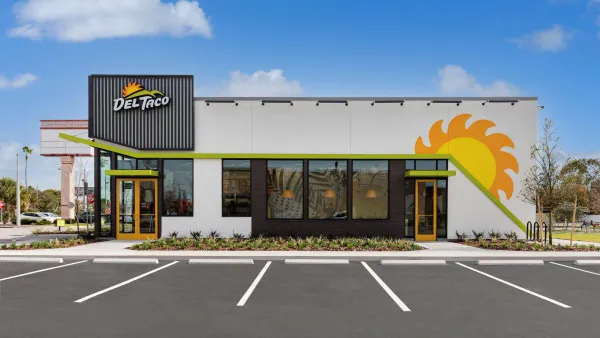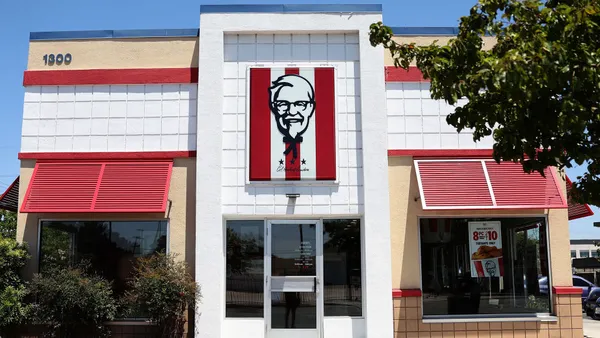Dive Brief:
- Shipments of plant-based proteins to food service operators increased 20% in the year ending November 2018. All Census regions showed double-digit growth, but the West and South Census regions had the highest growth and volume, according to data from The NPD Group.
- NPD’s research shows that about 25% of Americans say they consume plant-based food, even though many are not vegan or vegetarian. The growth is attributable to plant-based being a healthier option and consumers' increasing concerns about animal welfare.
- The biggest category of plant-based growth is burgers, with year-over-year double-digit growth in pounds shipped to operators.
Dive Insight:
The plant-based meat category is benefiting from a confluence of trends. About one-third of consumers now identify as flexitarians, for example, meaning they simply want another choice than traditional protein every now and then even if they're not technically vegan or vegetarian.
More consumers than ever also are gravitating toward environmental stewardship. A new report from Nielsen shows that 81% of global consumers believe it is important that companies implement programs to improve the environment. And, more consumers — roughly 88% — are willing to pay more for healthier foods.
The growth of plant-based proteins is strong enough for NPD advisor David Portalatin to declare it a new category.
"It's possible that protein overall is evolving into a category, whether animal meat, bans, nut, soy, wild game or other proteins, in forms ranging from beverage to center-of-plate," he said in a release.
Coincidentally, NPD's research shows that smaller, more affluent households — those earning $100,000 and up — are the top buyers of plant-based burgers. This makes sense considering the higher price tag that comes with these products at restaurants. The Carl's Jr. Beyond burger, for example, lists for about $6.29, versus its standard Famous Star, which is $2.69. Customers also can substitute the plant-based product on any burger for an additional $2, according to the company.
Despite the higher price point, plant-based meat has swiftly made its way across the industry, illustrating a clear demand. A&W Canada, for example, launched a Beyond Burger in July, which sold out in a few weeks. When White Castle initially launched its Impossible Slider early last year, VP Jamie Richardson said the product exceeded expectations, adding that some restaurants were selling as many as 300 a day.
Although the burger category is the clear winner early on in the plant-based meat trend, other categories also stand to benefit, especially as the product becomes more sophisticated and familiar. Dog Haus is one such example, offering free Beyond Brats to customers on Monday to entice its hot dog-loving customers to give them a try. It launched a plant-based menu in November. KFC also is reportedly working on a plant-based chicken product in the UK and Ireland markets.
Earlier this month, White Castle became the first restaurant chain to debut Impossible Foods’ new and improved Impossible Burger recipe. The company describes the upgraded burger as juicier, meatier and beefier. The fact that plant-based meat is not only growing at a double-digit clip, but also evolving in nature shows it has strong staying power.













